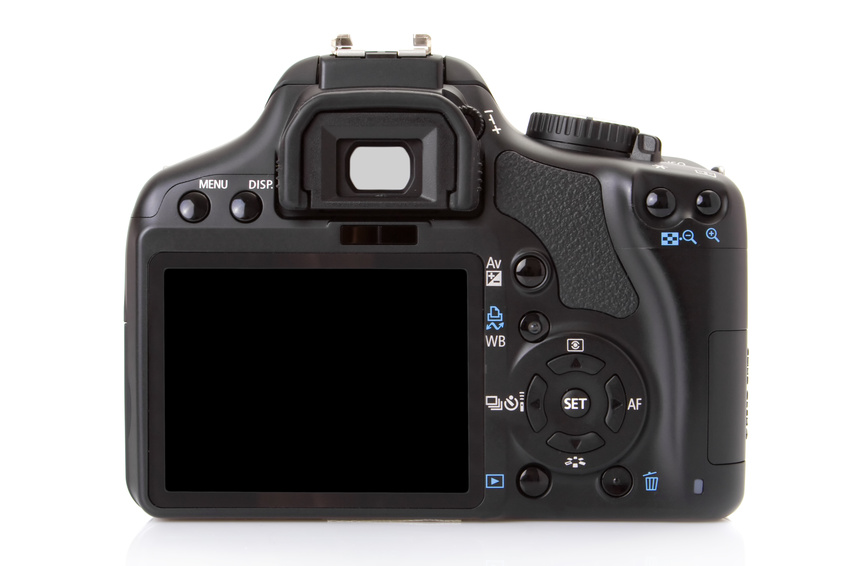You have discovered photography as your new hobby and want to advance your skills? In our digital camera buying guide, you will learn what you should look for when choosing the best DSLR camera for beginners.
A quick tip in advance before we dive into the details: An optical viewfinder is essential for you if you would like to invest in a flexible and expandable camera system that you can use for many years.
Advantages of a DSLR for Beginners
- Optical Viewfinder
What still sets the DSLR camera apart from competitors such as superzoom or mirrorless models is the optical viewfinder. Thanks to decades of market presence, the selection of available lenses and accessories is enormous. Beginners who are new to photography can start with a simple starter DSLR. Later on, they can specialize in individual subject areas and expand the system in any direction. Whether macro, telephoto, or special lenses such as ultra-wide angle or tilt-shift for architectural photography—there is everything you could need, including underwater housings. - Long-Term Use of Components
Lenses and accessories come at a price. The good thing is that most of them can be reused if you upgrade to a newer camera body from the same manufacturer after a few years. - Full Control
Photographers who choose a digital SLR camera will find fewer automated features and hardly any gimmicks in the menus. Camera operation is more straightforward compared to bridge or mirrorless models. Here, it is up to the photographer to use technique as a creative tool. The size and construction of the camera and lens make the aperture effect clearly visible. - Shutter Release Without Delay
Because the shutter release occurs without delay, continuous shooting works flawlessly. This allows the photographer to react instantly to changing conditions or special moments while holding their camera in their hand.
Weaknesses of a DSLR for Beginners
- Size and Weight
The size and weight of a DSLR can sometimes be a disadvantage, especially when traveling. If you add interchangeable lenses and an external flash, you will definitely need a camera bag. Furthermore, a larger, heavier tripod will be needed. Hence, for trekking tours or spontaneous snapshots, more compact models than a digital SLR camera are often the more practical choice. - Vibrations Caused by the Mirror
The mirror, which flips up when the shutter is released, causes the characteristic mechanical sound you might know. This sound cannot be turned off. When shooting with a tripod, the mirror movement can cause vibrations. This can be avoided with the mirror lock-up function, but unfortunately, not all beginner DSLR cameras include it. - Buttons and Menu Navigation
The button layout and menu navigation of starter DSLRs are not as comfortable as those of mid-range or professional models. However, some beginner models do offer a tilt screen and/or touchscreen functionality.
What to Look for When Buying a DSLR Camera
If you want to shoot long exposures, your DSLR for beginners should definitely have a mirror lock-up function. For wildlife and sports photography, fast continuous shooting speed is essential.
What is important to remember: The camera body becomes obsolete faster than the lense. Because of that you should avoid basic kit lenses with 18–55 mm focal length. Instead, opt for a 18–135 mm lens or a travel zoom (18–200 mm). An image stabilizer is a must, especially for travel zooms.
If you plan to switch to a full-frame camera body as a successor to your DSLR for beginners, keep in mind that inexpensive lenses designed for smaller sensors will not be usable anymore. High-quality optics are more important than the body of your DSLR camera itself: If you want to save money but still want to choose the best DSLR camera for beginners, you should save on the body rather than the lens.
Questions to Ask the Salesperson When Buying a DSLR Camera
- Long exposures: Does the DSLR camera have a mirror lock-up function?
- Sports/action: How many frames per second can the digital SLR camera capture?
- Viewfinder coverage: Does the optical viewfinder of the DSLR camera show at least 95% of the image?
A Final Tip for Choosing the Best DSLR Camera for Beginners
It is not a secret that the very latest models of digital SLR cameras are always the most expensive. But: Last year’s model might be perfectly sufficient for your needs. Canon, Nikon or Sony—do not turn the choice of the manufacturer into a matter of faith. Pick up your camera in person to see which one suits you best, or choose a brand that already exists in your family. That way you can share lenses and accessories., what is very practical.
And remember: Choosing the best DSLR camera for beginners is about finding a balance between features, budget, and long-term growth. With the right choice, your entry into DSLR photography will be exciting, but future-proof at the same time.

